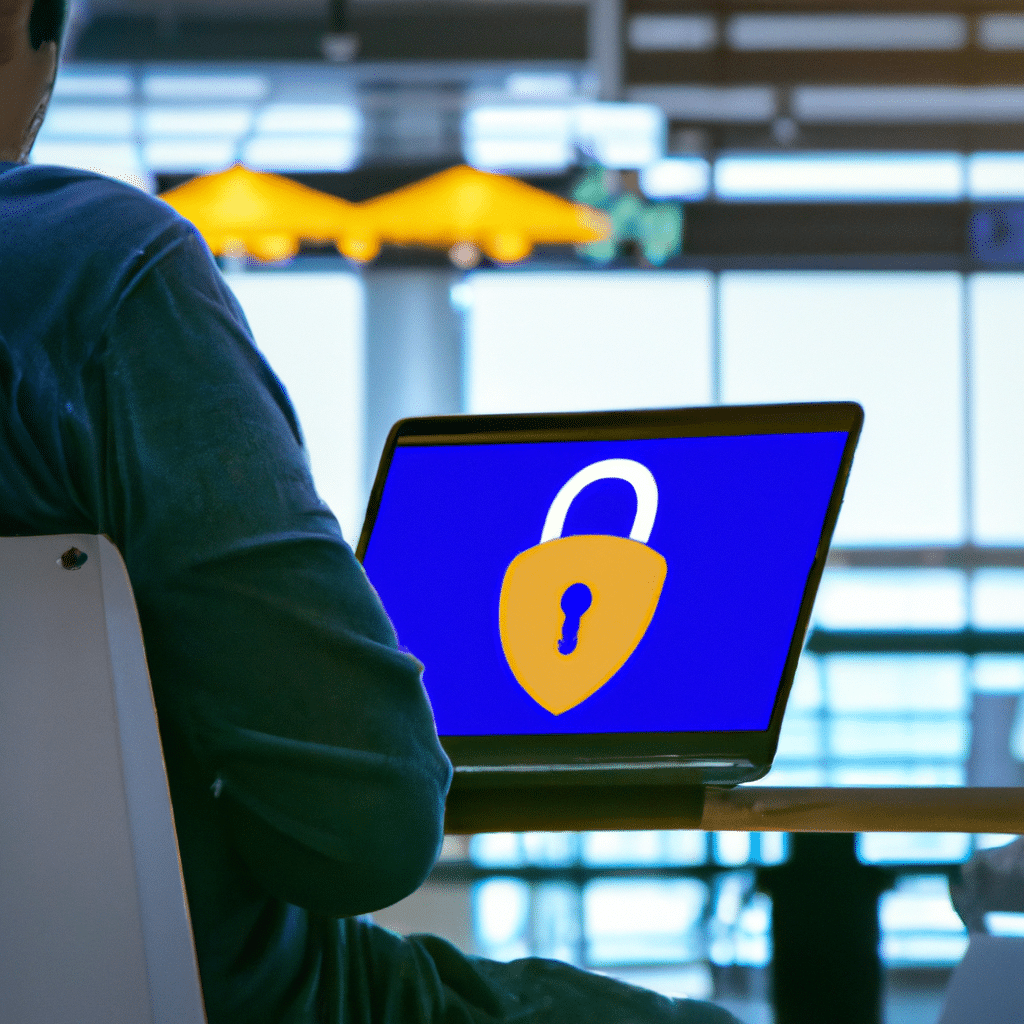In today’s digital age, public Wi-Fi has become ubiquitous. From coffee shops to airports, it is everywhere. However, with convenience comes risk. Public Wi-Fi networks are notorious for being unsecured, which means that your computer’s privacy and security are at risk. Hackers and cybercriminals can easily intercept your data and steal your personal information. Therefore, it is essential to take steps to protect your computer’s privacy and security while using public Wi-Fi. In this article, we will discuss various ways to secure your computer while using public Wi-Fi.

Use a Virtual Private Network (VPN)
A VPN is a secure and encrypted connection between your computer and the internet. It creates a private network that is isolated from the public internet, which means that your data is protected from prying eyes. When you connect to a VPN, all your online activities are routed through the VPN server, which encrypts your data and hides your IP address.
Using a VPN is one of the most effective ways to secure your computer while using public Wi-Fi. There are many VPN services available today, and most of them offer a free trial. You can choose a VPN service that suits your needs and budget.
Use HTTPS
HTTPS is a secure version of HTTP, which means that your data is encrypted and secure. When you visit a website that uses HTTPS, your data is encrypted before it is sent over the internet. This makes it difficult for hackers to intercept your data and steal your personal information.
You can easily identify whether a website uses HTTPS by looking at the URL. If the URL starts with “https,” then the website uses HTTPS. Most modern browsers also display a padlock icon in the address bar to indicate that the website uses HTTPS.
Use Two-Factor Authentication
Two-factor authentication is an additional layer of security that requires you to provide two forms of identification to access your account. It is an effective way to protect your online accounts from hackers and cybercriminals.
Many online services, including email providers and social media platforms, offer two-factor authentication. You can enable two-factor authentication in your account settings. When you log in to your account, you will be required to provide a code that is sent to your phone or email.
Disable File Sharing
File sharing is a feature that allows you to share files and folders with other users on the same network. However, it also makes your computer vulnerable to attacks. Hackers can easily access your files and steal your personal information.
Therefore, it is essential to disable file sharing when you are using public Wi-Fi. You can do this by going to your computer’s network settings and disabling file sharing.
Keep Your Software Updated
Keeping your software updated is essential to protect your computer from security vulnerabilities. Software updates often include security patches that fix known vulnerabilities. Hackers can exploit these vulnerabilities to gain access to your computer and steal your personal information.
Therefore, it is essential to keep your software updated, including your operating system, web browser, and antivirus software.
Use a Firewall
A firewall is a security feature that blocks unauthorized access to your computer. It acts as a barrier between your computer and the internet, protecting it from malicious traffic.
Most modern operating systems come with a built-in firewall. However, you can also use a third-party firewall for additional security.
Conclusion
In conclusion, public Wi-Fi networks are convenient, but they come with risks. Hackers and cybercriminals can easily intercept your data and steal your personal information. Therefore, it is essential to take steps to protect your computer’s privacy and security while using public Wi-Fi. Using a VPN, HTTPS, two-factor authentication, disabling file sharing, keeping your software updated, and using a firewall are effective ways to secure your computer while using public Wi-Fi. By following these steps, you can enjoy the convenience of public Wi-Fi without compromising your privacy and security.












